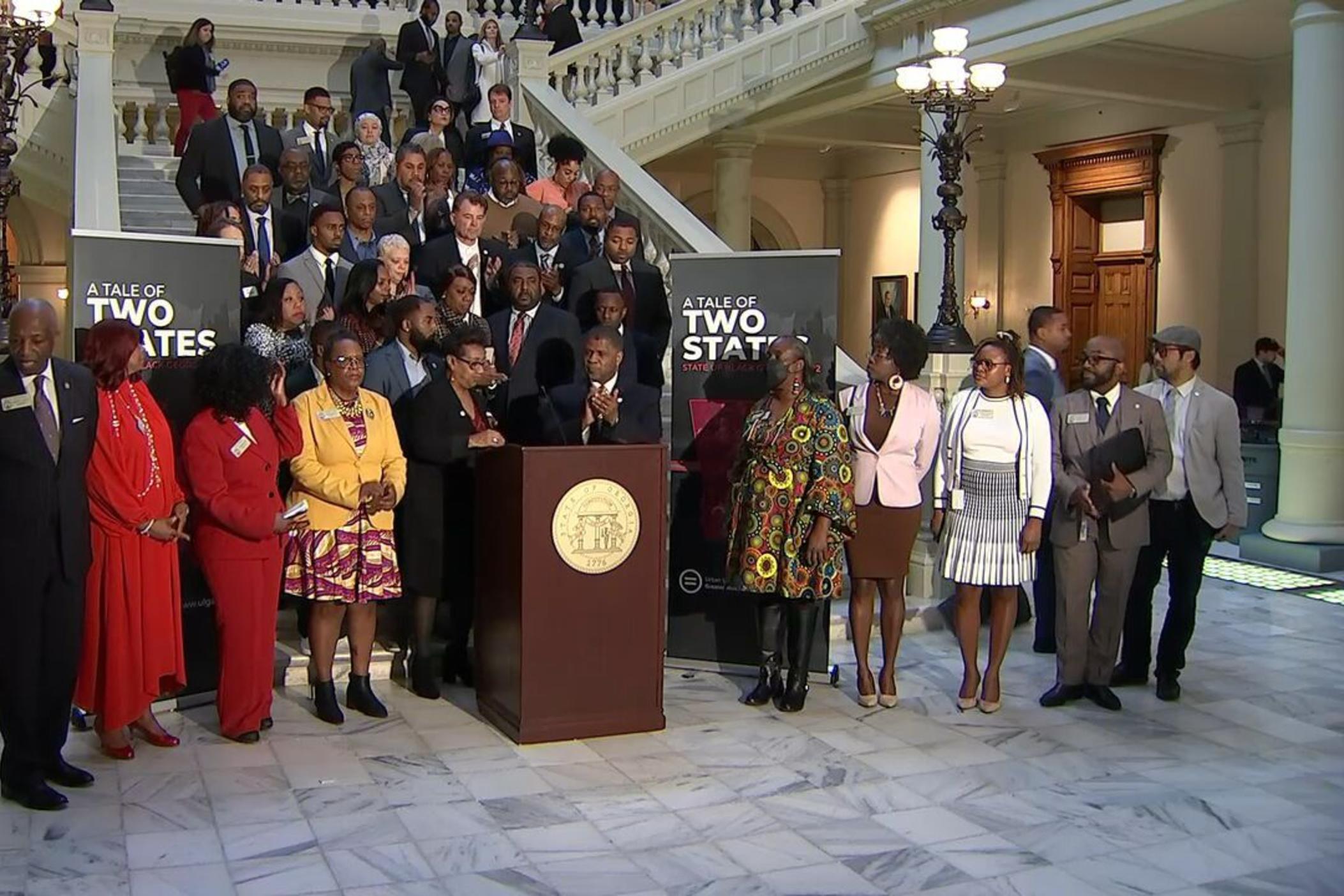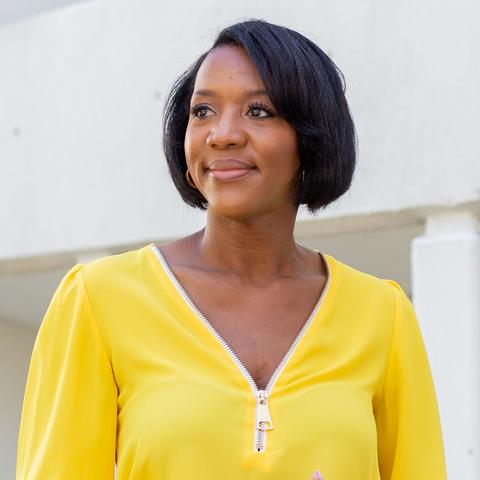Section Branding
Header Content
The State of Black Georgia report tells a tale of two states
Primary Content
The Urban League of Greater Atlanta's inaugural State of Black Georgia report gauges how African Americans are doing socially and economically in Georgia compared to white residents. Some of the findings:
- The percentage of Black students failing to read at a third grade level was 36% — that's a 25% increase over the pandemic.
- Georgia's Black population sits at 32%, while the State Department of Corrections reports 50% of inmates admitted in 2021 were Black.
- Redistricting in the state of Georgia weakens the political strength of Black Georgians.
The report focuses on six major urban areas across Georgia: Albany, Atlanta, Augusta, Columbus, Macon and Savannah.
GPB’s Leah Fleming spoke with Nancy Flake Johnson, president of the Urban League of Greater Atlanta, for a deeper dive into the findings.
Leah Fleming: So what are some of the factors that you look at to determine equality between Black and white Georgians?
Nancy Flake Johnson: Well, we decided to focus on five key areas of life that really make life quality. And we did that in alignment with the National Urban League's State of Black America report. Those are: education, economics, health, social justice and civic engagement. And so we've taken a qualitative and quantitative approach to the report. We also decided that if we were going to look at the state as a whole, it was critically important that we visit Black communities across the state. And so to your point, earlier, we did zero in on six metro area communities and we visited each and every one. And we met with Black leaders there. We took tours of the communities there and really listened.
Leah Fleming: What did they say were some of the most important things?
Nancy Flake Johnson: What we also did was we did a composite ranking. And on the composite ranking, economics ranked No. 1; education No. 2; social justice came in third; health, fourth; and civic engagement, fifth. And I find those rankings very interesting because, certainly, all of these areas are critically important, but at the end of the day, what we believe will move the needle for Black Georgians really focuses on what ranked fifth, which is civic engagement. Part of the reason, a big part of the reason that Georgians across this state are suffering — many are suffering in every one of these areas — it has to do with our policies and the laws that are on the books that have been on the books throughout the history of the state. And so one of our goals is to use the report to elevate civic engagement as a priority for Black Georgians.
Leah Fleming: So in terms of civic engagement, what are some of the things people can do in — in those communities? I'm assuming run for office.
Nancy Flake Johnson: Run for office! Absolutely. We need more people that have the best interests of all Georgians to be in the seats. Because when one party dominates all of the critical areas of our government, then — unless that party has a platform that is equitable in the way it operates and the laws that it passes — then there are members of our community that are going to suffer. And so we need people to run that have the interests of Black Georgians, which — all of these things are critical to any Georgian.
Leah Fleming: Were there any parts of the state that really concerned you the most?
Nancy Flake Johnson: Albany, Albany, Albany. Well, all of the smaller cities makes me heartbroken. But Albany in particular: 72% Black. A city — the region is about half Black and they have the highest rates of poverty. Like over 50% of the families in that area live in poverty.
Leah Fleming: Hmm.
Nancy Flake Johnson: How can this not be unsettling for the powers that be? And yet we hear all these “Oh, the state is great. Everything's wonderful.” Well, everything's wonderful for half the state. But it's not wonderful for the other half. And we've got to tell the truth. And so — and I'll tell you the other thing that that bothered me very deeply: Three out of the six regions, those cities that are predominantly Black have been merged into their counties. And that has diluted Black power over resources in those communities. And in every community, what was promised would be the positives of that merger have not been fully realized.
Leah Fleming: The next steps with this report, what are you going to do with it next? Are you sharing it with the governor's office?
Nancy Flake Johnson: Yes, we have a request in now to meet with the governor. We purposely released the report at the capitol and hosted a meeting after. Not very many legislators came, but we know that they're in the thick of the final stages of this legislative session. So throughout the spring, summer and fall, we will be conducting briefings one-on-one in small groups with legislators, with corporations, with philanthropists, with the Black community across this state. We're going to be out on the road sharing the findings. But what we also like about this report: At the end, there are calls to action, and we're constantly adding to that list because everybody always says, "What can I do?" And guess what? Everybody can do something.
Nancy Flake Johnson is president of the Urban League of Greater Atlanta. You can find the complete report here.


